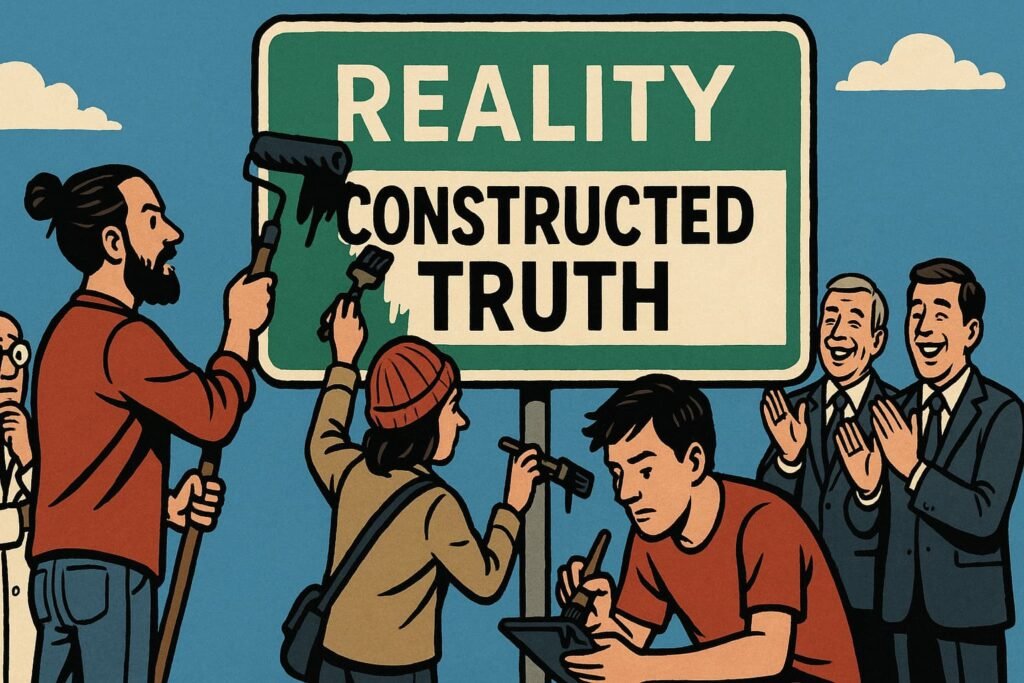Social Constructivism – Reality by Committee
Truth used to mean facts, evidence, and things you could test. Social constructivism flips that on its head: reality isn’t discovered, it’s negotiated. If enough people shout the same story, it becomes “true.”
It sounds clever, but in practice, it means biology, history, and common sense can all be rewritten by activists, professors, or HR departments armed with the right buzzwords.
Table of contents
Buzzword Breakdown
- Social Constructivism → Reality is whatever society says it is.
- Constructed Truth → Beliefs treated as facts if enough people agree.
- Deconstruction → The endless game of pulling apart what used to be obvious.
- Reframing → Taking an old concept, slapping on new language, and pretending it’s brand new.
What It Really Means
Social constructivism is the idea that things like gender, race, morality, or even knowledge aren’t fixed — they’re invented by culture, power, and language.
In theory, it’s about questioning assumptions. In practice, it’s about moving the goalposts until nothing is certain.
How It Works in Practice
- Universities → Professors tell students that science is “just another narrative.”
- Activists → Use “socially constructed” to dismiss biology, history, or tradition.
- Media → Reinforce the new “truths” until challenging them sounds outrageous.
- Institutions → Rewrite policies to reflect constructed identities, not reality.
The Business of Constructivism
Once you accept reality as negotiable, you can sell a new one.
- Consultants make money redefining workplace norms.
- NGOs lobby for laws based on “constructed identities.”
- Corporations rebrand to fit whatever reality is trending this week.
It’s not philosophy. It’s a business model.
The Irony
Social constructivists claim to liberate people by showing that “everything is a construct.” But if nothing is fixed, then nothing is stable.
Instead of freeing us, it leaves everyone at the mercy of whoever shouts the loudest.
Why It Matters
- It erodes shared reality.
- It replaces science with slogans.
- It arms activists and bureaucrats with endless reasons to rewrite rules.
When truth itself is “socially constructed,” there’s no ground left to stand on.
Conclusion
Social constructivism sounds like intellectual sophistication — until you realise it’s just power dressed up as philosophy. Whoever controls the construct controls the world.
And that’s the point: it’s less about truth, more about control.
FAQ
Isn’t everything socially constructed?
Not really. Language and customs are, but biology and physics aren’t negotiable.
Where does social constructivism come from?
It’s rooted in postmodernism. See: [Postmodernism – When Truth Became Optional].
How do universities push it?
By teaching students that objective truth is a myth. See: [Universities – The Factory of Woke Graduates].
Why is it useful for activism?
Because if reality is just a construct, activists can demand endless redefinitions.
What’s the danger?
It leaves society vulnerable to manipulation, with laws and policies built on shifting sands.
See: Politics & Identity Activism – How Laws Bend Under Pressure.



